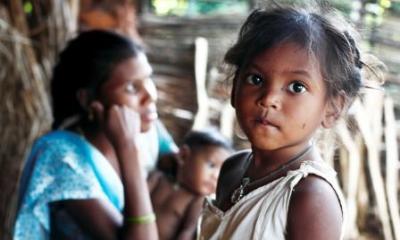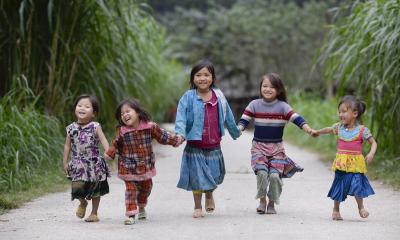
The questionnaires used for the Young Lives survey are developed specifically for each survey round, to capture the changes in household circumstances and the children's lives as they grow up. In each case, a core questionnaire is produced and used across all four study countries, with specific questions and sections added by each country team to capture information of particular relevance in that country. The table below gives links to the questionnaires used in each country.
- Younger Cohort Household Questionnaire (age 5) - includes sections on Parental background; Household education; Livelihoods and asset framework; Household food and non-food consumption and expenditure; Social capital; Economic changes and recent life history; Socio-economic status; Child care, education and activities; Child health; Anthropometry; Caregiver perceptions and attitudes; Child achievement and development instruments.
- Older Cohort Household Questionnaire (age 12) - includes sections on Parental background; Household education; Livelihoods and asset framework; Household food and non-food consumption and expenditure; Social capital; Economic changes and recent life history; Socio-economic status; Child health; Anthropometry; Caregiver perceptions and attitudes.
- Older Cohort Child Questionnaire (age 12) - includes sections on School and activities; Child health; Social networks, social skills and social support; Feelings and attitudes; Parents and household issues; Perceptions of future, environment and household wealth.
- Community Questionnaire - includes a General module with sections on General characteristics of the locality; Social environment; Access to services; Economy; Local prices; and a Child-specific module with sections on Education services (general); Education services (Pre-school, Primary, Secondary); Health services; Child protection services. The Ethiopia questionnaire includes an additional country-specific module; the India questionnaire had no section on Child protection.
Any questionnaires without links are currently unavailable.
Round 2 survey (2006-7)
|
Ethiopia |
India |
Peru |
Vietnam |
|
OC Household Questionnaire (age 12)
|
OC Household Questionnaire (age 12)
|
OC Household Questionnaire (age 12)
|
|
|
|
|||
|
|
|||
|
|
|
|
The questionnaires used for the Young Lives survey are developed specifically for each survey round, to capture the changes in household circumstances and the children's lives as they grow up. In each case, a core questionnaire is produced and used across all four study countries, with specific questions and sections added by each country team to capture information of particular relevance in that country. The table below gives links to the questionnaires used in each country.
- Younger Cohort Household Questionnaire (age 5) - includes sections on Parental background; Household education; Livelihoods and asset framework; Household food and non-food consumption and expenditure; Social capital; Economic changes and recent life history; Socio-economic status; Child care, education and activities; Child health; Anthropometry; Caregiver perceptions and attitudes; Child achievement and development instruments.
- Older Cohort Household Questionnaire (age 12) - includes sections on Parental background; Household education; Livelihoods and asset framework; Household food and non-food consumption and expenditure; Social capital; Economic changes and recent life history; Socio-economic status; Child health; Anthropometry; Caregiver perceptions and attitudes.
- Older Cohort Child Questionnaire (age 12) - includes sections on School and activities; Child health; Social networks, social skills and social support; Feelings and attitudes; Parents and household issues; Perceptions of future, environment and household wealth.
- Community Questionnaire - includes a General module with sections on General characteristics of the locality; Social environment; Access to services; Economy; Local prices; and a Child-specific module with sections on Education services (general); Education services (Pre-school, Primary, Secondary); Health services; Child protection services. The Ethiopia questionnaire includes an additional country-specific module; the India questionnaire had no section on Child protection.
Any questionnaires without links are currently unavailable.
Round 2 survey (2006-7)
|
Ethiopia |
India |
Peru |
Vietnam |
|
OC Household Questionnaire (age 12)
|
OC Household Questionnaire (age 12)
|
OC Household Questionnaire (age 12)
|
|
|
|
|||
|
|
|||
|
|
|
|






